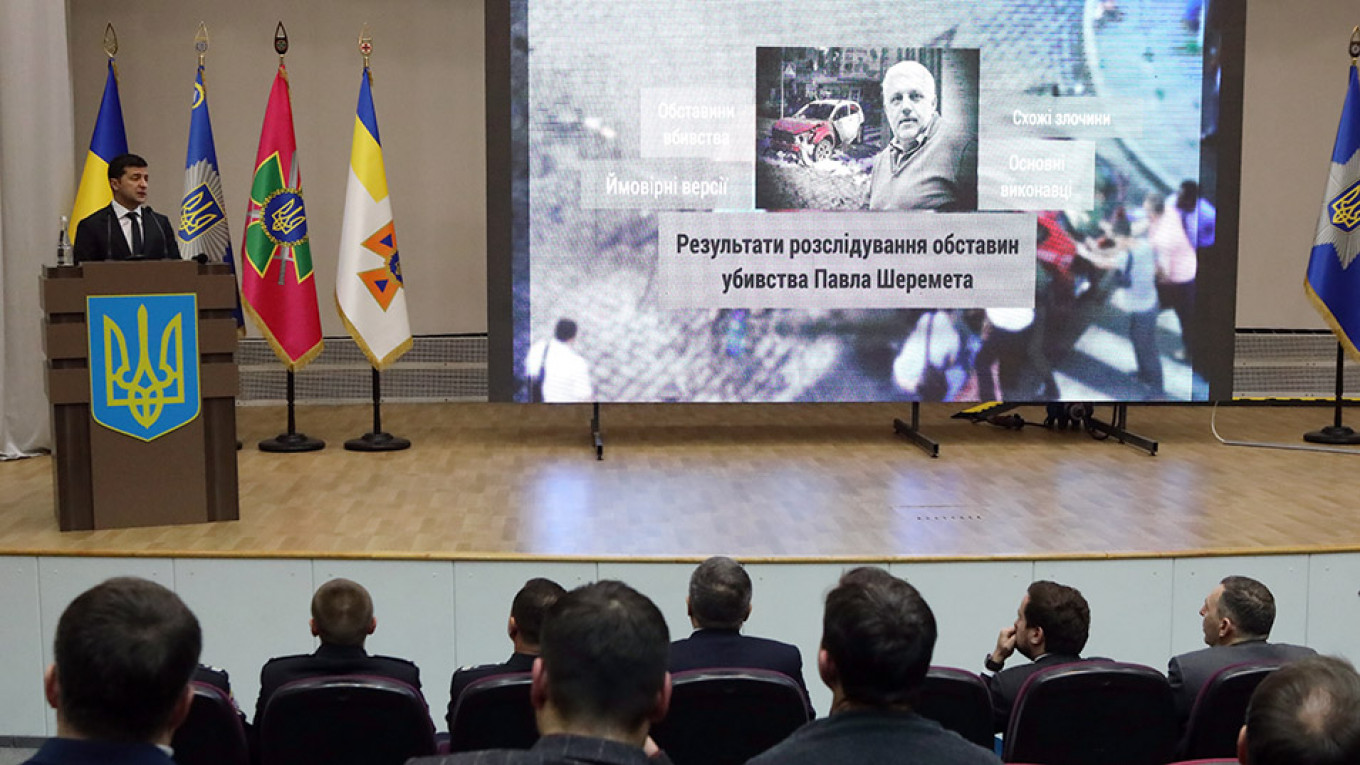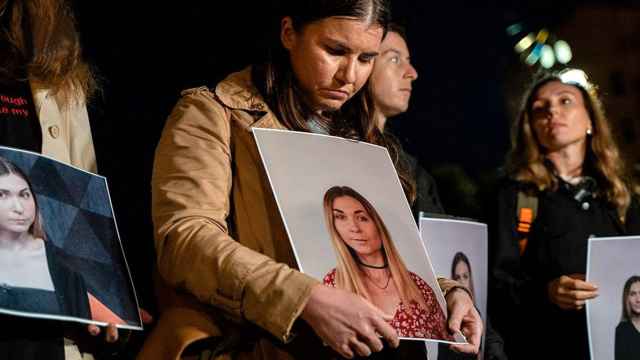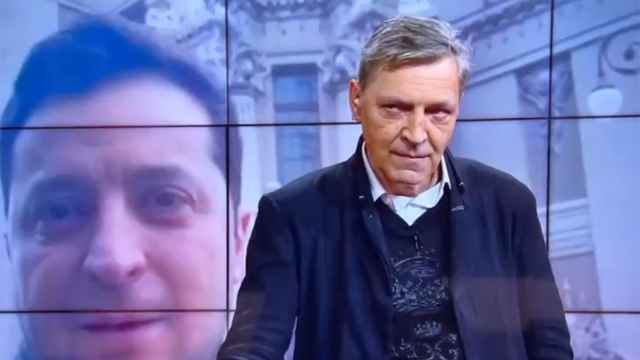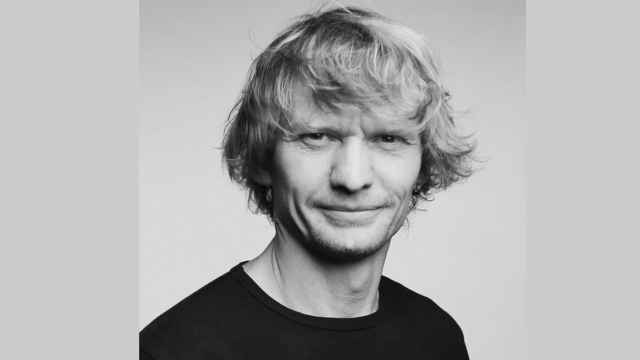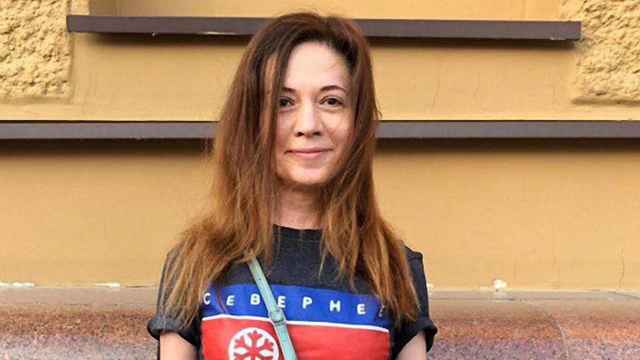Ukrainian police have detained five people, including a pediatric surgeon and a rock musician, over the killing of an investigative journalist in a car bomb in July 2016, law enforcement officials said on Thursday.
Briefing journalists alongside President Volodymyr Zelenskiy, the officials said the motive for killing 44-year-old Pavel Sheremet, a Belarussian, was to destabilize the country but declined to say who might have ordered the murder.
"In this country, very few people believed that such a crime could be solved. This is the first step in solving this crime, because only those who planned and committed the murder have been identified," Prosecutor General Ruslan Ryaboshapka said.
"The country still needs to hear the answer to who was the initiator and organizer of this terrible murder."
The New York City-based Committee to Protect Journalists (CPJ) welcomed the detentions.
"We call on the authorities in Kiev to ensure that all perpetrators, including the masterminds, are brought to justice," it said in a statement. "Journalists in Ukraine cannot feel safe as long as the murderers of their fellows walk free."
Police suspect at least five people were involved, and said all had served as volunteers in Ukraine's war against Russian-backed rebels in the eastern Donbass region. A sixth suspect had been invited questioning but committed suicide, they said.
None of the five suspects made statements. One opposition lawmaker said the detentions appeared an attempt to repress people who were defending Ukraine.
The five included a pediatric surgeon who in 2016 was given a state award for her humanitarian assistance in the east. She planted the bomb under the car, police said, along with a rock musician who was also an army volunteer.
Sheremet, who was killed in Kiev on his way to work, was known for his criticism of his home country's leadership and his friendship with slain Russian opposition leader Boris Nemtsov, a critic of the Kremlin.
In 2002, he won a journalism prize from the Organization for Security and Co-operation in Europe (OSCE) for his reporting on human rights violations in Belarus, including the disappearances of opposition politicians and journalists.
He was given Russian citizenship after fleeing persecution in Belarus but relocated permanently to Ukraine in 2014 after no longer feeling safe in Moscow.
Western diplomats, the OSCE and rights activists had urged Ukraine to solve the case.
Sheremet worked for the online news website Ukrayinska Pravda whose founder, Georgiy Gongadze, was also murdered in 2000, his decapitated body discovered in a forest outside Kiev.
A Message from The Moscow Times:
Dear readers,
We are facing unprecedented challenges. Russia's Prosecutor General's Office has designated The Moscow Times as an "undesirable" organization, criminalizing our work and putting our staff at risk of prosecution. This follows our earlier unjust labeling as a "foreign agent."
These actions are direct attempts to silence independent journalism in Russia. The authorities claim our work "discredits the decisions of the Russian leadership." We see things differently: we strive to provide accurate, unbiased reporting on Russia.
We, the journalists of The Moscow Times, refuse to be silenced. But to continue our work, we need your help.
Your support, no matter how small, makes a world of difference. If you can, please support us monthly starting from just $2. It's quick to set up, and every contribution makes a significant impact.
By supporting The Moscow Times, you're defending open, independent journalism in the face of repression. Thank you for standing with us.
Remind me later.



